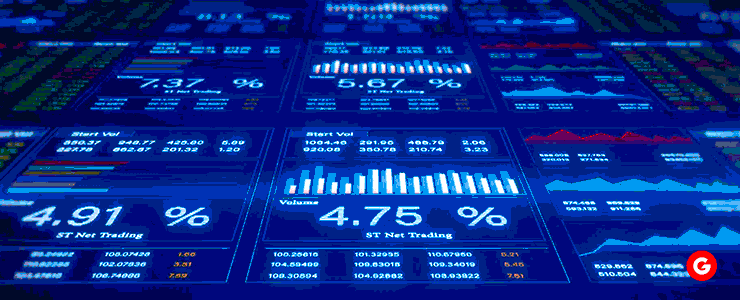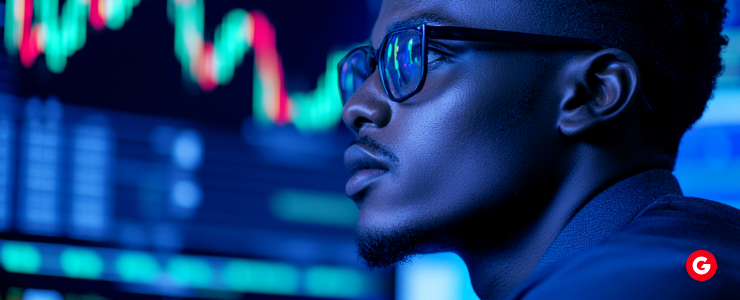Forex Trading is a huge and renowned currency exchange method. It requires purchasing a single currency and selling a different one during the profit conversion from the trade. A reliable statistic suggests that the forex market has profited over 7.5 trillion dollars globally, ultimately making it the largest trading market in the world.
If we had to give an example, it would be currency trading during a trip abroad. Other forex trading platforms include CFD, online trading, and MetaTrader 4.
Basics of Forex Trading: How to do Forex Trading?
However, if you decide to start trading the forex market, here are some tips that you can follow:
Pick Up On Forex
You cannot get far with only basic theories on the forex market. To make real profits, you need to know about forex market terminology and how this platform works. This process has facilities like market designs, currency sets, and elements affecting currency costs.
Making a trading tactic
You have to differentiate various trading plans, which include basic analysis, technological proof strategy, and news operation. You must select a tactic relevant to your trading projects and schemes.
Create A Plan
One must develop a trading plan that also covers his aim, risk tolerance, tactics, and other useful facilities. The most important thing is not just creating a scheme but being persistent about it. Successful traders are mostly obedient traders.
Setting Up A Brokerage Profile
A successful forex market trading requires selecting a brokerage managed by a renowned financial administration, just like the U.S facility CFTC (Commodities Futures Trading Commission). It provides the user with an easily operated trading program, low charges, and adequate customer care.

Types Of Markets
The Forex trading market is essentially operated through the futures, spot, and forward platforms. Of these three, the spot market is the biggest one because it is the fundamental asset on which the futures and forward platforms are operated.
Spot Market
Currencies are purchased and sold according to their financial trading value on the spot market platform. Request and supply decide the values and responses to components like
- Financial Value Speculation
- Economic Presentation
- Interest Outlays
- Intergovernmental Events
A spot deal is a completed pact on the spot platform. It is a cooperative agreement in which one party transfers a single currency to the equivalent party and obtains a fixed quantity of a different currency at the settled transferring value rate.
Forwards Market
A forward deal is a private consensus for purchasing at a future time and a specified financial price. Forwards are operated on OTC platforms. Futures deals are also operated through the same protocols but are systemized.
Future Market
Futures deals are sold and purchased on a quality measure and a fixed date on general item markets, like the CME (Chicago Mercantile Exchange).
Future deals have specified features that include the number of traded units, arranged dates, delivery, and minimal value additions that can not be altered. The trade functions as an equivalent party to the users, offering authorization and settlement facilities.
General Forex Trading Tactics
A few of the most general trades are short and long dealings, and points, pips, and ticks measure their commercial values.
What happens in a long trade is that the dealer wagers that the commercial value will rise and anticipates selling the spot for higher demand.
Short trades, in terms of currency, are wagers that expect the currency’s commercial value to fall. Traders also have the leverage to perform trading tactics via technical assessments, like MA (Moving Averages) and breakouts, to enhance their trading probability.
Although, it is possible to list four types of trading schemes, such as:
- Position Trade: In this trade, the traders can grasp the currency for a longer period. It may be up to months or even years.
- Day Trade: These trades are generally brief, where the positions are grasped and closed down on the same day. The period of such trades may vary up to hours or even minutes.
- Scalp Trade: Scalp Traders are responsible for holding positions for minutes or seconds. Their profits are normally restricted to pips.
- Swing Trade: Swing trades require traders to seize positions for longer than a day. These trades can last weeks or days.
Forex Trading: Pros and Cons
| Pros | Cons |
| It is called the largest trading market for its daily trading volume. | Leverage can lead to losses. |
| The trading occurs for five days a week and twenty-four hours a day. | It is not unusual for leverage to be 50:1 or higher than that. |
| Capital initiation has the chance to multiply rapidly. | Forex trading requires knowledge of the basic economy, macro elements, and pointers. |
| The trading pattern is generally the same as the regular trading. | Forex Trading is less adjusted than its competitors. |
| It is more segregated than bond and stock platforms. | It has hardly any facilities to generate income. |
Hedging Forex
Some companies conducting business in a foreign land often face financial risks because of variations in commercial values when they try to sell or purchase outside their domestic domain. However, the forex market offers a path to hedge commercial risk by correcting a rate, where the arrangements are made.
Forex Scam Protection
The professionals prioritize learning proper methods due to a large increase in the chance of getting scammed.
However, here are a few steps you can follow:
Confirming Broker Qualification: This guarantees that a broker works with a relevant administrative authority, such as the Financial Conduct Authority (FCA) or CFTC (Commodity Futures Trading Commission). You should verify its official standing and conformance background. There are six forex traders under CFTC registration in the U.S:
- Tastyfx LLC
- Interactive Brokers LLC
- Gain Capital Group LLC
- Charles Schwab Futures and Forex LLC
- Trading.com Market Inc.
- Oanda Corporation
Doubting High Returns: You should ignore investment odds that assure high return values with fewer risks. Guaranteed investments always carry some risk, and professional forex traders try to neglect the risks to ensure you are aware of your situation.
Using Security Facilities: To enhance your private profile and information privacy, it is better to use password protectors, antivirus, and VPNs.

FAQs
1. How do you learn forex trading as a beginner?
– It requires selecting a famous forex broker, demo tradings, and micro profiles.
2. What is the primary factor of forex trading?
– It involves sharing one asset for another.
3. Can beginners profit through forex trading?
– Yes, it is possible as the platform provides many facilities for small investors and beginners.
4. Can I pursue forex trading on my own?
– It is not a problem as many guides can be found online.
Conclusion
Beginners need to know the basics because, without them, this platform is impossible to navigate. For a better trading experience, one should also know facilities like the CFD trading system, online trading, and MetaTrader 4.
We would also like to introduce our trading platform, FXGiants. According to many user reviews, our platform offers swift financial withdrawals and various facilities for trading convenience. We offer flexible and user-friendly solutions to help you achieve your trading goals. Also, our FXGiants trading is regulated through Notesco and many too many licenses.
DISCLAIMER: This information is not considered investment advice or an investment recommendation, but is instead a marketing communication
